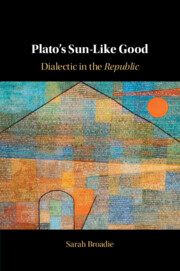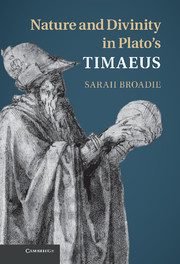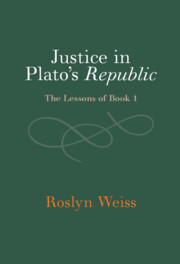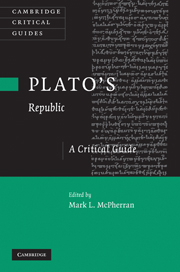Plato's Sun-Like Good
Plato's Sun-Like Good is a revolutionary discussion of the Republic's philosopher-rulers, their dialectic, and their relation to the form of the good. With detailed arguments Sarah Broadie explains how, if we think of the form of the good as 'interrogative', we can re-conceive those central reference-points of Platonism in down-to-earth terms without loss to our sense of Plato's philosophical greatness. The book's main aims are: first, to show how for Plato the form of the good is of practical value in a way that we can understand; secondly, to make sense of the connection he draws between dialectic and the form of the good; and thirdly, to make sense of the relationship between the form of the good and other forms while respecting the contours of the sun-good analogy and remaining faithful to the text of the Republic itself.
- Offers a new interpretation of a core doctrine of Platonism
- Makes sense of one of the most famous and most enigmatic passages in the whole of Plato
- Provides clear and closely reasoned guidance through the central books of the Republic
Reviews & endorsements
‘Sarah Broadie’s new book is one of the most exciting and important books I have read on Plato’s Republic. Its rigorous and systematic challenge to orthodox ways of understanding what the form of good is, and why mathematics plays a central role in a philosopher’s education, will be debated for many years to come.’ Richard Kraut, Northwestern University
‘… exemplary and inspiring.' William Altman, Bryn Mawr Classical Review
Product details
February 2023Paperback
9781009016407
250 pages
229 × 152 × 13 mm
0.37kg
Available
Table of Contents
- Part 1. Approaching the Sun-Good Analogy:
- 1.1 Introductory
- 1.2 The philosopher-rulers' intellectual task
- 1.3 'The most important thing to learn': Between plural and singular
- 1.4 What further knowledge does the longer way achieve?
- Part 2. The Form of the Good and Knowledge:
- 2.1 Sun, cave, and sun again
- 2.2 Connecting sun and line
- 2.3 Higher and lower intellectual levels
- 2.4 Mathematical versus dialectical hypotheses
- 2.5 Saphēneia
- 2.6 The form of the good as non-hypothetical principle
- 2.7 Dialectic and the good: Some questions
- 2.8 The role of the form of the good in dialectic
- 2.9 Some objections and replies
- 2.10 Textual counterevidence
- 2.11 The non-hypothetical principle as first premiss?
- 2.12 The form of the good as object of definition?
- 2.13 Dialectic and experience
- 2.14 Diagrams, dialectic, and context
- 2.15 Dialectic in government
- 2.16 Not rigorous enough?
- 2.17 Why is dialectic cognitively superior to mathematics?
- 2.18 Why are we shown so little about dialectic in the Republic?
- 2.19 True philosophers versus sight-lovers
- 2.20 Criteria and scope of 'good'
- 2.21 Main positions of Parts 1 and 2
- Part 3. The Form of the Good and Being:
- 3.1 Preliminaries
- 3.2 First proposal
- 3.3 Interim discussion of 505a2-4
- 3.4 Second proposal
- 3.5 Perfectionist accounts
- 3.6 System accounts
- Part 4. Various Further Questions:
- 4.1 Ambiguity of 'the good' (I)
- 4.2 Ambiguity of 'the good' (II)
- 4.3 Why the mathematical education?
- 4.4 Cosmology, theology
- Part 5. Winding Up.





